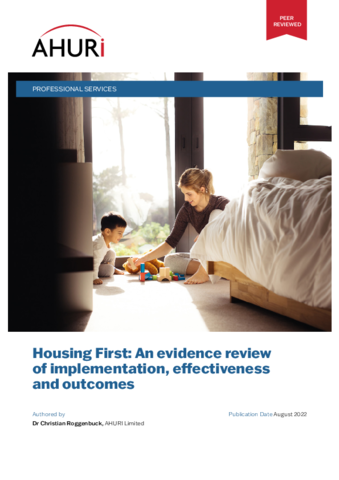Delivered by AHURI Professional Services
This evidence review synthesises the Australian and international literature on Housing First and its implementation, effectiveness, and outcomes.
Housing First originates from the ‘Pathways to Housing’ program in the US. The ‘Pathways to Housing’ program has become an often replicated model to support people experiencing chronic homelessness by providing immediate access to permanent housing integrated with support services. The ‘Pathways to Housing’ program has been articulated through a set of principles that guide the delivery of other Housing First programs. At the heart of Housing First lies rapid housing access, consumer choice, the separation of housing from support, holistic recovery and harm minimisation, and community integration.
A key finding from the research is that Housing First is highly effective in providing housing stability for people with a history of chronic homelessness and complex needs. Evaluations of Housing First programs consistently report high levels of tenants sustaining their housing (typically ranging from 66% to 90%), which is significantly higher compared to ‘treatment as usual’ approaches.
In addition, as Housing First programs provide access to health, mental health and other support services, tenants are less likely to be admitted to hospitals and emergency departments and are less involved with the criminal justice system. Ultimately, while Housing First is a resource-intensive intervention it is most cost-effective for people experiencing chronic homelessness who have complex and high needs.


